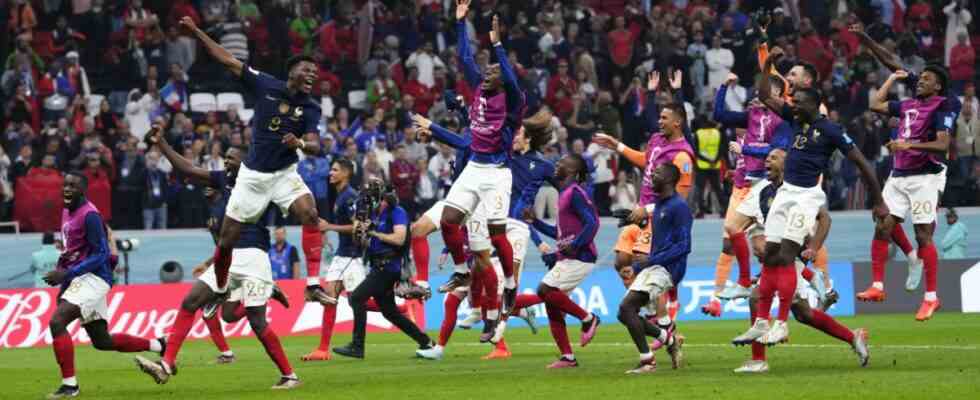As France and Argentina head towards a final that not only pleases the host Emir of Qatar, but also cheers up the whole world with its glamor, the Germans, down on their luck, have no choice but to leaf through the poetry album of their World Cup history. There they can enjoy the insults that have always been devoted to their national team and their football in all continents. Now and then there was praise for attractive moments, 1990 in Italy, 2014 in Brazil. But far more often the German style of football has been cursed as if it were a premeditated crime against the beautiful game.
The French have every right and every reason to be proud of having reached a World Cup final for the second time in a row. It is no exaggeration to speak of a French age of football. France, which a generation or two ago was still said to be more suitable for boule and billiards due to the enjoyment of its inhabitants, is a football superpower in the 21st century. Its reservoir of great and special players seems to be constantly renewed. To believe the French can win the hat-trick in North America in 2026 is not a far-fetched vision.
The protagonists of a final with many prominent players – and again without Germans: Kylian Mbappe (left) and Lionel Messi duel on Sunday not only for the World Cup title but also for the top scorer’s crown.
(Photo: Franck Fife, Odd Anderson/AFP)
There are these cycles on the plateau of national football. Brazil reached the final in 1994, 1998 and 2002. But no epoch can be compared with that German period, which represented a reign of terror in the eighties. German teams were not described as an ensemble of athletes, but as machines in person, at best as old Germanic forest warriors. Paul Breitner was “the leader of the barbarians” at the 1982 World Cup (El País), an Italian newspaper illustrated the way to the final with a caricature in which the German steamroller flattened the Spanish bull, the English lion and the Gallic rooster.
The groans and sighs of the German competitors were among the highest conceivable praise
In 1986 again this groaning all over the world when the DFB-Elf penetrated into the final again. Le Figaro: “The Germans used their realism”; El Mundo: “Work, hard work, all very German”; Corriere della Sera: “This time, too, Platini’s dream was shattered by the German tanks.” SZ correspondent Ludger Schulze saw his compatriots as “forest workers who cleared the field and felled every player”. In Asia in 2002, in a new age, the old sighs returned. “Oh, damn. That one again,” he shouted DailyStar out, and the Times complained: “Völler’s merciless army marches on.”
Wonderful compliments that warm your heart after the last two tournaments ended early. The appraisals from back then show what is missing in German football today, in the tone of the press from the past: brutal realism, devilish solidity, the strength of bulldozers. It almost seems as if DFB President Bernd Neuendorf had appointed the right sponsors to his council of sports experts in the form of eighties heroes Rudi Völler and Karl-Heinz Rummenigge.
Significantly, Hansi Flick’s players are still present in Qatar, if only statistically. Under the title “Participation in attacking sequences”, the Opta number service lists the players who have contributed the most to scoring chances. Logically, Kylian Mbappé and Lionel Messi are at the top, followed by Antoine Griezmann and Theo Hernández with almost identical scores – and Jamal Musiala, Serge Gnabry and Joshua Kimmich. The latter with half the number of minutes of use.
What follows? There was no lack of enthusiasm and offensive action, but there was a lack of efficiency. Defensive and disciplined order anyway. Complaints about the loss of the classic German virtues are therefore not necessarily reactionary, they can serve self-knowledge. The current football world power offers orientation: With their objective and success-oriented style, the French almost look like the new Germans.

